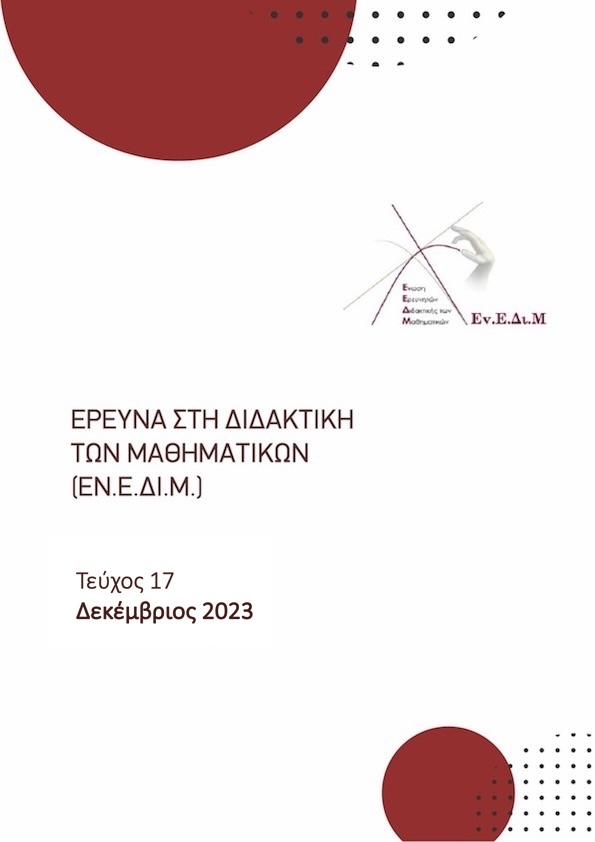Εργαλεία, όργανα, πόροι και τεχνουργήματα στη Διδακτική των Μαθηματικών
Abstract
Αν και η έννοια του εργαλείου έχει επηρεάσει σε σημαντικό βαθμό τη Διδακτική των Μαθηματικών, η επιστημονική κοινότητα δεν φαίνεται να συμφωνεί ως προς τη σημασία του όρου εργαλείο και των άλλων σχετικών όρων που χρησιμοποιούνται ευρέως στη βιβλιογραφία όπως το τεχνούργημα, το όργανο και ο πόρος. Για την αναγνώριση της σημασίας που αποδίδεται σε κάθε όρο από τους Έλληνες ερευνητές και τις Ελληνίδες ερευνήτριες, δημιουργήθηκε σώμα κειμένων 1.500.000 λέξεων από τα πρακτικά του Πανελλήνιου συνεδρίου της Ένωσης Ερευνητών Διδακτικής των Μαθηματικών (2005-2022) και εφαρμόστηκαν μέθοδοι γλωσσολογίας σωμάτων κειμένων. Για την ερμηνεία των αποτελεσμάτων υιοθετήθηκε η Θεωρία Προτύπου που υιοθετεί την ύπαρξη ιεραρχικών δομών κατά την οργάνωση της γνώσης στη σημασιολογική μνήμη.
Article Details
- Come citare
-
Αναστασάκης Μ., & Βασιλάκη Ε. (2023). Εργαλεία, όργανα, πόροι και τεχνουργήματα στη Διδακτική των Μαθηματικών. Έρευνα στη Διδακτική των Μαθηματικών, (17). Recuperato da https://ejournals.epublishing.ekt.gr/index.php/enedim/article/view/34589
- Sezione
- Άρθρα

TQuesto lavoro è fornito con la licenza Creative Commons Attribuzione 4.0 Internazionale.
Οι συγγραφείς των άρθρων που δημοσιεύονται στο περιοδικό διατηρούν τα δικαιώματα πνευματικής ιδιοκτησίας επί των άρθρων τους, δίνοντας στο περιοδικό το δικαίωμα της πρώτης δημοσίευσης. Άρθρα που δημοσιεύονται στο περιοδικό διατίθενται με άδεια Creative Commons BY και σύμφωνα με την άδεια μπορούν να χρησιμοποιούνται ελεύθερα, με αναφορά στο/στη συγγραφέα και στην πρώτη δημοσίευση.


